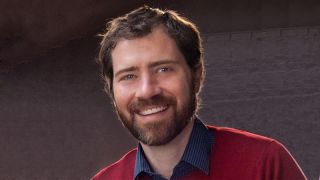Dr Eric Guibert


Dr. Eric Guibert is a gardener of landscapes, architect, educator and researcher.
He is senior lecturer at the University of Westminster where he leads the undergraduate design studio Architectural Animism (DS[3]2). The studio investigates the architecture of ecological processes and regenerative design methods and pedagogies.
The students speculate on possible ecological futures that nurture the resilience of ecosystems. Such holistic approach works with both fields of buildings and landscapes architectures as a continuum of degrees of shelter. His students have won a number of awards including Kacper Sehnke who won the RIBA President’s Bronze Medal in 2023, which is the highest accolade for an undergraduate student in the UK.
He is lecturer in design and theory in the Masters in Landscape Architecture at the Bartlett, UCL, where he leads the Feral Landscapes Design Studio (Studio 1) with Emma Colthurst. In the same course, he created and runs the theory and practice seminar Designing with Feral Natures, as well as supervises final year thesis. A few of his students have won the school’s Landscape Thesis Prize or been nominated for the World Architecture Student Award for Research.
Eric has been design critic at the architecture schools of Cornell University, The Bartlett, London Metropolitan University (CASS), University of Greenwich and others.
He has decades of experience as both a practicing – building – architect and a hands-on gardener of a feral landscape in Western rural France. You can often find him there mowing paths, pollarding trees, or scything a meadow.
Eric’s research investigates how the design of built and grown architectures can nurture and express dynamic, and more equal, relations between humans and ecosystems, and ways of creating architecture with their emergence while nurturing their resilience.
This "architectural animism", is a way of designing buildings and landscapes with the agency of ecosystems, other-than-human and human beings combined. The enquiry takes a new materialist and ontopolitical stance and aligns with regenerative design practices.
The research is developed through a reflective practice methodology. The methods are varied and mesh the design and realisation of built and grown architectures, theoretical and literary writing, and reflective drawings and photographs.
The first phase of practice research was extracted in the PhD thesis The gardener architect: designing with the emergent natures of places, which was completed at KU Leuven, as an EU funded Marie Skolodowska Curie doctoral research fellow as part of the ADAPT-r project following the through reflective practice methodology developed by Leon van Schaik at RMIT.
The current enquiry is on "modern animism", an ontology and practice model that combines both the control of modernist knowledge and the creativity of a vibrant world. The research aims to clarify the possible productive relations between the efficiency of top-down mainstream design practices and those of dynamic and bottom-up "regenerative" processes.
The current locations are Feral Landscape practices, more commonly known as wilding, rewilding, and ecological landscape practices. A few upcoming book chapters have been clarifying their definition, ontology, methods and tools.
In parallel to this more theoretical analysis, various actors – human and other – found in feral landscape practices are being analysed through a combination of literary and academic writing, including a series of speculative letters between these actors (soil, trees, water…) and the researcher.
The key case study is a 3 hectares property in France where both landscape and building architecture have been designed over the last decades to speculate on dynamic relations with the various actants – living beings, and ecosystems – of various scales including meadows, woodland, trees, climate, and other human beings. The project has won an award for its ecological approach.